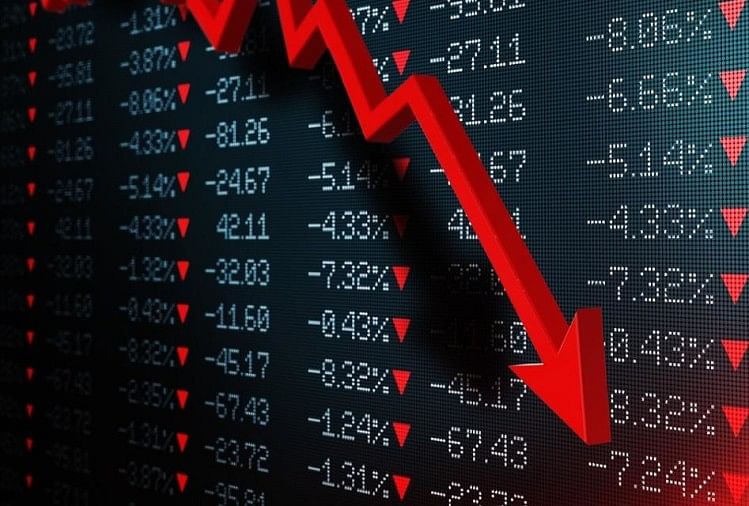India’s stock benchmarks logged their worst day since Russia began the invasion of Ukraine on Feb. 24, amid fears over energy shortage as the U.S., Europe mull embargo on Russian oil, which threatens to lead to a surge in inflation and derail global growth.
The Sensex shed 1,491.06 points to 52,842.75. This is the first time Sensex closed below 53,000 in seven months. The 30-stock gauge shed nearly 2,000 points to an intraday low of 52,367.10.

The news has lifted the crude prices to a 13-year high, which is a major cause for concern for emerging markets like India which still imports more than 80 percent of its oil requirement. Every rise in oil price is a big risk for the country as it fuels inflation worries, increases trade deficit, and hits corporate earnings and economic growth.
All these concerns further dented market sentiment across the globe. The BSE Sensex fell 1,491 points or 2.7 percent to 52,843 and the Nifty50 broke its crucial 16,000 mark for the first time since July last year, down 382 points to 15,863.
The BSE market capitalization dropped to Rs 241.1 lakh crore today, against Rs 270.6 lakh crore on February 2.
The broader markets also corrected in line with front liners. The Nifty Midcap 100 and Smallcap 100 indices declined 2 percent each.
Auto, banking, financial services, and realty witnessed the maximum pain, falling 4-5 percent, while metal bucked the trend with 2.1 percent gains.
Factors that are triggering bloodbath on D-Street
Oil prices hit over $130 a barrel on Monday after the United States and European allies explored a Russian oil import ban, while delays in the potential return of Iranian crude to global markets sped up supply fears, according to a Reuters report.
International benchmark Brent crude futures traded 6 percent higher at $125 a barrel at 5:58 pm, after hitting an intraday high of $139.13, the highest since 2008. While the US crude topped $130 a barrel intraday on March 7.
India imports more than two-thirds of its oil requirements, and higher prices push up the country’s trade and current account deficit while also hurting the rupee and fuelling imported inflation.
A spike in oil prices on fears of a ban on Russian oil imports stoked worries about higher inflation. A bigger current account deficit for the world’s third-largest importer of crude.
“Markets are rattled with a sharp surge in crude amid the fear of further sanctions on Russia. Besides, there’s no sign of de-escalation of tension between the two nations”, Ajit Mishra, VP – Research, Religare Broking Ltd. wrote in a note. He added, “We expect volatility to remain high and suggest keeping a close watch on global markets for cues. On the domestic front, state elections exit polls.












